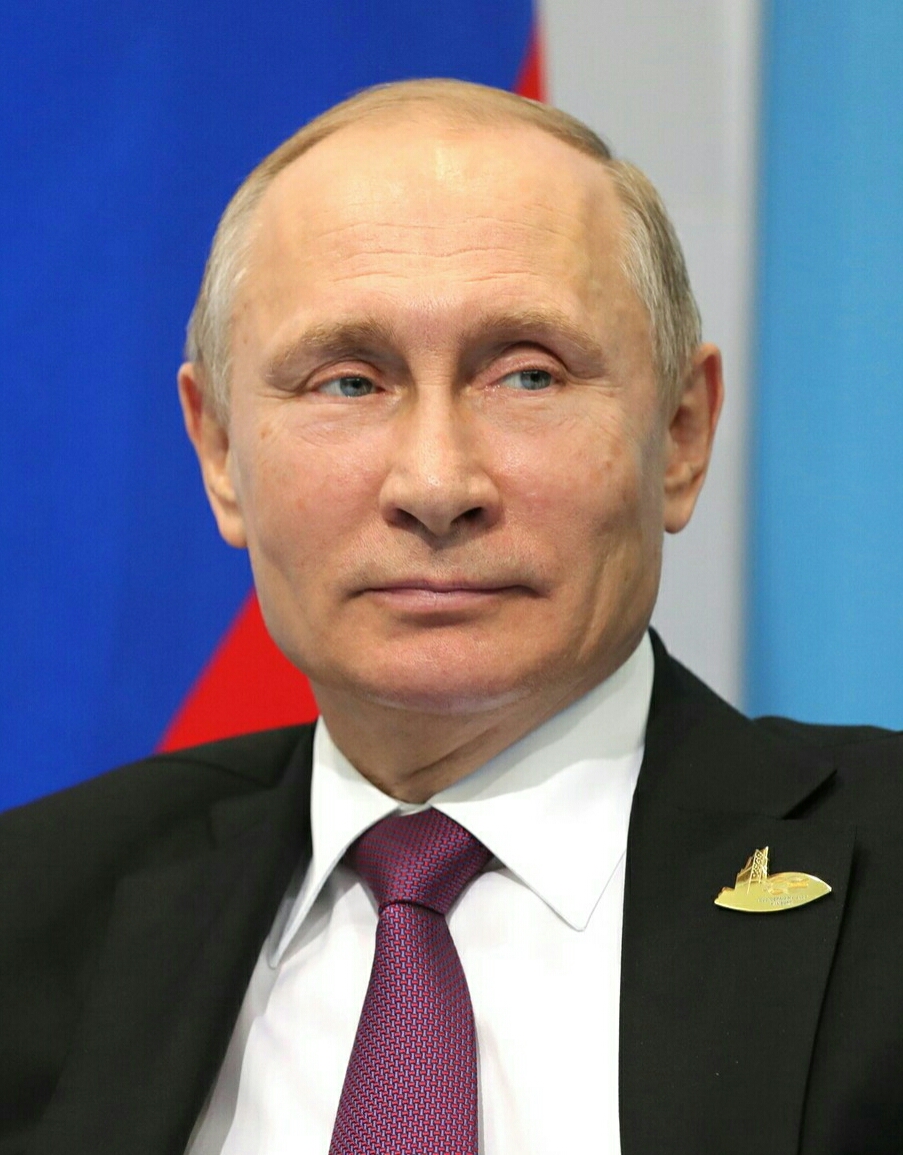Vladimir Putin Frases famosas
“A morte da União Soviética foi a maior catástrofe geopolítica do século.”
Demonstrando nostalgia dos tempos do comunismo; como citado in Revista Veja, 04.05.05.
“Máfia não é uma palavra russa.”
Vladimir Putin, presidente russo, na Itália, falando aos repórteres sobre o crime organizado em seu país; citado em Revista Veja, Edição 1 653 - 14/6/2000 http://veja.abril.com.br/140600/vejaessa.html
“Faremos o máximo para salvar a tripulação.”
Vladimir Putin, presidente russo, um dia antes de a Marinha norueguesa constatar que não havia ninguém vivo no submarino Kursk
Fonte: Revista Veja, Edição 1 664 - 30/8/2000 http://veja.abril.com.br/300800/vejaessa.html
Vladimir Putin: Frases em inglês
July 17, 2006, during the St. Petersburg Group of Eight summit Putin said in reply to George W. Bush, who said he hopes Russia will follow Iraq in turning to democracy
http://www.brendan-nyhan.com/blog/2006/07/bush_says_just_.html http://www.cnn.com/2006/WORLD/europe/07/15/russia.g8/index.html
2006- 2010
interview with TF-1 Television Channel (France) http://www.kremlin.ru/eng/text/speeches/2006/07/12/1829_type82916_108548.shtml, taken on July 12, 2006
2006- 2010
“Russia doesn't negotiate with terrorists. It destroys them.”
http://www.ruvr.ru/main.php?lng=eng&p=29.01.2008&rt=124
2006- 2010
http://kremlin.ru/eng/speeches/2007/01/18/0726_type82914type82916_117126.shtml
2006- 2010
(17 April 2014) http://on.rt.com/vqds8o
2011 - 2015
Response to John McCain's tweet "Dear Vlad, The Arab Spring is coming to a neighbourhood near you." http://www.telegraph.co.uk/news/worldnews/europe/russia/8958294/Vladimir-Putin-calls-John-McCain-nuts-in-outspoken-attack.html
2011 - 2015
In response to those who called Putin to enter talks with Chechen separatists after the Beslan school hostage crisis, in September 2004
[Putin rejects "child-killer talks", BBC News, 2004-09-07, http://news.bbc.co.uk/2/hi/europe/3633668.stm, 2006-07-07]
2000 - 2005
When asked in June 2007 at the interview with G8 journalists about main achievements of his presidency http://web.archive.org/web/20070607221025/http://www.kremlin.ru/eng/speeches/2007/06/04/2149_type82916_132772.shtml.
News conference http://www.guardian.co.uk/Iraq/Story/0,2763,810093,00.html with then British Prime Minister Tony Blair, October 2002.
2000 - 2005
Kremlin RU http://kremlin.ru/eng/speeches/2006/05/10/1823_type70029type82912_105566.shtml (10 May 2006)
2006- 2010
During his speech at the Valdai forum in 2013
2011 - 2015
Kremlin RU http://web.archive.org/web/20061013001158/http://www.kremlin.ru/eng/speeches/2006/06/27/2040_type82912type82913type82914_107818.shtml (27 June 2006)
2006- 2010
Regarding a statement by Francois Hollande of "the need for Assad to leave". (June 1, 2012) http://www.businessweek.com/news/2012-06-01/hollande-clashes-with-putin-over-ouster-of-syria-s-assad
2011 - 2015
Crimea address (18 March 2014) http://rt.com/news/putin-address-ten-quotes-778/
2011 - 2015
When Larry King asked that Robert Gates is wrong or right about Russia that democracy has disappeared and the government being run by the security services. (February 2010) http://en.rian.ru/interview/20101202/161586625.html
2006- 2010
“In America, torture was legalized, do you believe it?”
RT news Putin Press conf http://rt.com/news/215471-putin-press-conference-updates/ (18 December 18, 2014)
2011 - 2015
2006- 2010
Fonte: Annual Address to the Federal Assembly http://kremlin.ru/eng/speeches/2006/05/10/1823_type70029type82912_105566.shtml, (10 May 2006)
Meeting of the Valdai Club, 2016-10-27.
http://en.kremlin.ru/events/president/news/53151 () http://kremlin.ru/events/president/news/53151
On Ukraine
Понятно, что надо больше платить, это самый простой вариант, не всегда возможный,(но простой) но способов решения проблемы много
On human capital flight, in address to Committee for Education, Science and Technology (26 October 2004).
2000 - 2005
6 December 2014, Владимир Путин @ facebook. com
Interview http://web.archive.org/web/20130614041959/http://www.youtube.com/watch?v=33oIF-ggK5U (2013).
2011 - 2015
“For the preservation of the majestic Russia!”
(2013) http://tvrain.ru/articles/putin_poluchil_premiju_vsemirnogo_russkogo_sobora_za_sohranenie_derzhavnoj_rossii-355720/
2011 - 2015
“We are guided by interests rather than feelings in dealing with our partners.”
10 December 2014 http://itar-tass.com/en/economy/766135, "Russia interested in US economy’s ability to resist current crisis — Russian PM"
2011 - 2015
http://kremlin.ru/eng/speeches/2007/02/01/1309_type82915_117609.shtml
2006- 2010
2015-06-06, Interview to the Italian newspaper Il Corriere della Sera. http://en.kremlin.ru/events/president/news/49629
2011 - 2015
Interview with German television channel ARD and ZDF, May 2005. Kremlin, RU, http://archive.kremlin.ru/eng/speeches/2005/05/05/2355_type82912type82916_87597.shtml (May 2005)
2000 - 2005
On not wanting to deal with the US re: Edward Snowden, 25 June 2013 http://www.guardian.co.uk/world/2013/jun/25/edward-snowden-moscow-vladimir-putin. guardian.co.uk
2011 - 2015
In response to a journalist who asked about Russian abuses in Chechnya during a press conference in November 2002 Newsbusters http://newsbusters.org/blogs/p-j-gladnick/2009/12/30/ouch-putin-answer-about-terrorism-stuns-press-conference-silence#ixzz2Wxbq9sOU
2000 - 2005
In Enniskillen, 18 June 2013, g8-summit-politics-live-blog http://www.guardian.co.uk/politics/blog/2013/jun/18/g8-summit-politics-live-blog, guardian.co.uk
2011 - 2015
